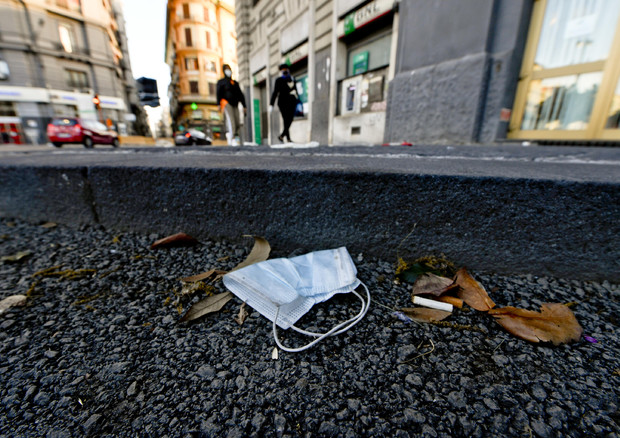Researchers at the Royal Melbourne Institute of Technology (RMIT) have developed a project to recycle surgical masks into construction material for streets and pavements
For more than a year now, we have been used to wearing masks. The Covid-19 health emergency has ‘forced’ us to use this health device to protect ourselves from infection and to avoid infecting those around us. Some masks can be washed and reused several times while others are disposable. If not properly disposed of, masks can become a polluting waste that is very harmful to the environment. To get an idea of the extent of the problem, an average of 6.8 billion disposable face masks are used worldwide every day, and more than half of these are not disposed of properly. A big problem for the environment! At the same time, however, used masks can become a second raw material (this is the name given to materials derived from the recovery and recycling of waste) useful for the construction of roads and pavements. This is the idea of a group of researchers from the Royal Melbourne Institute of Technology (RMIT) in Australia.
Read also -> Covid: when will we get back to normal? The ISS sets the date
Recycling masks to build roads
In a study to be published in May in the journal Science of the Total Environment, Australian researchers analysed the mechanical properties of disposable surgical masks. Through various tests, they discovered that these seemingly delicate sanitary devices are actually extremely robust. Hence the idea of adding them to concrete and traditional building materials to reinforce the roads and pavements of our cities. Obviously, we will never see used masking tape stuck between the tiles of the driveway! The used masks have to be shredded into tiny fragments and then added to the cement or tar used in the first layers of paving. The first author of the study – Dr Mohammad Saberian – explained that to build one kilometre of a two-lane road, 3 million masks would be recycled, preventing 93 tonnes of waste from ending up in landfills. “We were thrilled,” Saberian added, “to discover that our idea not only works, but also offers real engineering benefits. We hope this will spark further research into ways to recycle other types of PPE as well.”
You might also be interested -> An alternative to face masks? From Berlin comes iSphere
